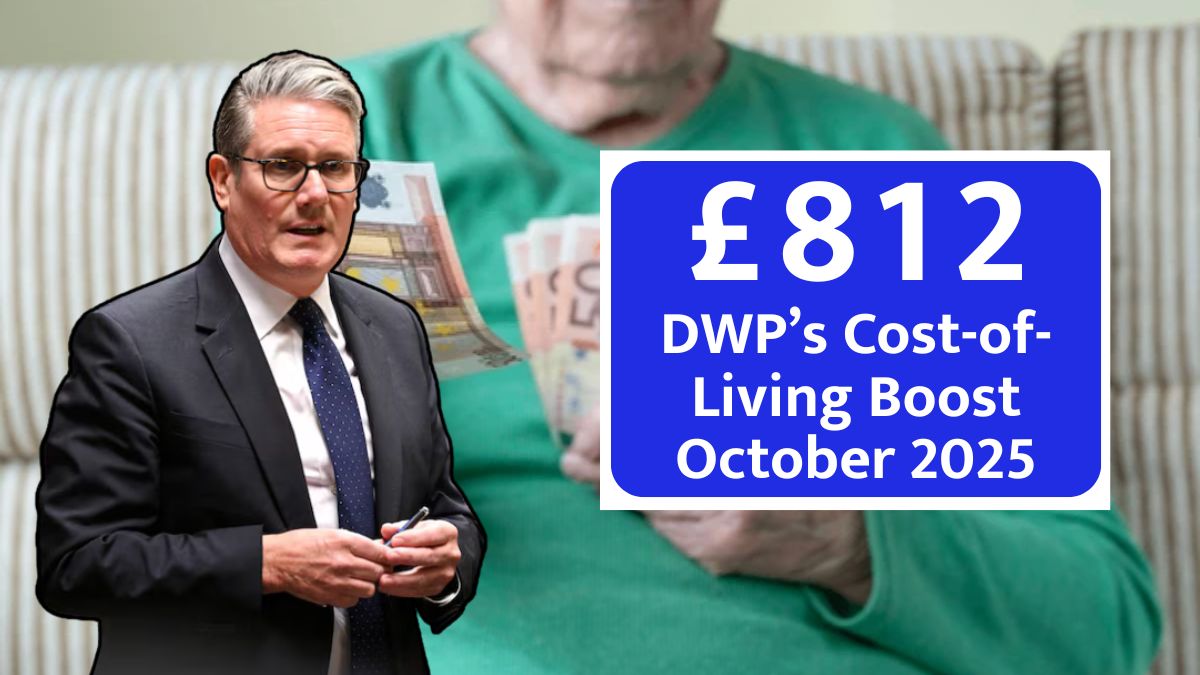The UK government’s new £29,000 payout scheme is being hailed as one of the most significant financial relief programs of 2025. Designed to assist workers who have lost income, faced workplace changes, or met specific benefit conditions, this one-time payment could provide lifesaving support amid rising living costs.
For many, this payout represents a crucial financial cushion—offering funds that can cover rent, mortgages, energy bills, debts, or educational expenses. However, with strict eligibility criteria and tight deadlines, understanding the process is essential for every potential claimant.
Why the £29,000 Payout Matters

For UK households under economic pressure, an additional £29,000 could drastically improve daily life. The payout helps families manage rising bills, ease financial burdens, and even support retirement planning.
Many workers view it as more than just financial help—it’s recognition of their contributions to the workforce during challenging times. The payout aims to stabilise income, reduce household debt, and boost consumer confidence across the country.
Who Is Eligible for the £29,000 Payout
Eligibility is the cornerstone of this government scheme. Not everyone will qualify, and workers must meet several requirements to be approved.
Applicants must:
- Be in active employment during the specified timeframe set by the government.
- Have paid National Insurance contributions for a minimum qualifying period.
- Belong to a sector impacted by redundancy, restructuring, or government-supported transitions.
- Hold UK residency or settled worker status.
- Not exceed income thresholds that could lower or eliminate their payout.
Failing to meet any of these conditions could result in a partial payment or full ineligibility.
Income Thresholds for Workers
One of the most important eligibility factors is income level. Workers earning below a specific annual threshold may qualify for the full £29,000, while higher earners could see reductions.
According to HMRC, tax records will be reviewed to determine final eligibility. It’s vital that all workers update their tax information before applying to avoid miscalculations.
Higher-rate taxpayers are more likely to receive partial assistance, while middle- and low-income earners will benefit most from the full support.
Required Documents for Application
To ensure a smooth claim process, applicants must prepare accurate documentation before submitting their forms. Missing or incorrect documents are among the most common reasons for rejection.
You will need:
- Proof of identity (passport or driver’s licence).
- National Insurance number.
- Recent payslips or P60 form.
- Employment history showing continuous or qualifying work.
- Bank account details for payment transfer.
Applicants should double-check all entries before submission—accuracy is key to avoiding delays.
How to Apply for the £29,000 Worker Payout
The government has made the process straightforward but strict. Workers can apply via the official government website using their Government Gateway ID.
Here’s a breakdown of the process:
- Log in to your Government Gateway account.
- Fill out the online claim form with accurate personal details.
- Upload the required identity and employment documents.
- Verify your income and eligibility responses.
- Submit your application and keep the acknowledgment receipt.
Postal submissions may be accepted in special cases, but online applications are faster and more secure.
Step-by-Step Claim Processing Timeline
Once submitted, applications go through several verification stages before approval:
- Week 1–2: Initial review of form and documents.
- Week 3–5: Income verification by HMRC.
- Week 6–8: Approval and payment confirmation.
Most payments are completed within 4–8 weeks, depending on workload and accuracy. Applicants are notified by email or post once the payout has been processed.
Common Reasons for Claim Rejection
Thousands of workers lose eligibility due to simple avoidable errors. To increase your chances of approval, watch out for:
- Expired or mismatched ID documents.
- Incorrect National Insurance numbers.
- Incomplete or missing payslips or tax details.
- Late submissions after the deadline.
- False or inconsistent employment information.
Rejections can often be prevented by reviewing every detail carefully before clicking “submit.”
Tax Treatment of the £29,000 Payment
Whether the payout is taxable depends on your total annual income. For higher-rate taxpayers, part of the £29,000 may be subject to deductions.
Lower-income workers could receive the payout tax-free, but all recipients must verify their obligations. HMRC recommends declaring the amount on self-assessment tax returns where applicable to avoid future penalties.
If unsure, consulting a tax adviser or using HMRC’s online calculator is the safest approach.
How the Payment Could Affect Benefits
Workers receiving Universal Credit, Housing Benefit, or other income-based support should be cautious. A large one-time payout could affect entitlement amounts.
The Department for Work and Pensions (DWP) may treat the payout as additional income or savings, potentially reducing future benefit payments.
It’s advisable to inform the DWP in advance and request guidance to avoid unintentional overpayments or deductions.
Can Part-Time Workers Apply?
Yes. Part-time employees are eligible but may receive smaller payments based on income and working hours.
Those working fewer than 16 hours a week may not qualify for the full £29,000. However, they remain eligible for partial compensation, ensuring fair inclusion for flexible or non-traditional workers.
Eligibility for Self-Employed Workers
The scheme also extends to self-employed individuals, provided they meet tax filing and income contribution rules.
HMRC will evaluate self-assessment records to confirm eligibility. Self-employed workers must ensure their returns are filed and up to date, as missing submissions lead to automatic disqualification.
What to Do If Your Claim Is Rejected
Rejections aren’t always final. Workers have the right to appeal within 30 days of receiving a decision.
To strengthen your case:
- Provide additional documents proving eligibility.
- Request a formal review by the appeals department.
- Seek legal or union assistance if necessary.
Many previously rejected claims have succeeded after appeal, especially where evidence was missing initially.
Final Payout Amounts and Variations
While £29,000 is the maximum limit, not every applicant will receive the full amount. The final sum depends on:
- Annual income.
- Employment duration.
- Tax bracket.
- Benefit status.
Some may receive partial payments ranging from £5,000 to £20,000, based on individual circumstances.
Why Workers Should Apply Early
Deadlines for this scheme are strictly enforced, and late submissions are rarely accepted.
Applying early has several benefits:
- Faster processing and payment.
- Time to correct documentation issues.
- Priority in case of application surges.
With demand expected to be high, early applicants stand the best chance of receiving timely approval.
Economic Impact and Public Response
Experts believe the £29,000 payout could inject millions into the UK economy, helping households manage rising living costs.
However, critics warn that the funding structure may strain government budgets if not monitored properly. Despite this, public sentiment remains largely positive, especially among middle-income earners facing financial stress.
Key Takeaways for UK Workers
- The £29,000 payout scheme is one of the largest one-time financial aids in 2025.
- Only eligible UK workers meeting specific income and employment conditions can apply.
- Applications must be submitted online via the official government portal.
- Payments take 4–8 weeks after approval.
- Tax and benefit implications vary by income level.
For many, this payout could mean the difference between financial struggle and stability in an era of high living costs.
FAQs on the £29,000 UK Worker Payout
Q1. What is the £29,000 payout scheme?
It’s a government-backed one-time payment program offering up to £29,000 to eligible UK workers who meet employment and income conditions.
Q2. Who can apply for the payout?
Workers who paid National Insurance, meet income limits, and have been in qualifying employment can apply.
Q3. Is the payout taxable?
It depends on your total annual income. Higher earners may pay tax on a portion of the amount.
Q4. Will this payout affect my benefits?
Yes. The DWP may consider it additional income, possibly reducing Universal Credit or Housing Benefit.
Q5. How long does it take to receive the payment?
Most applicants receive funds within 4–8 weeks after approval, provided all documents are accurate and verified.




















